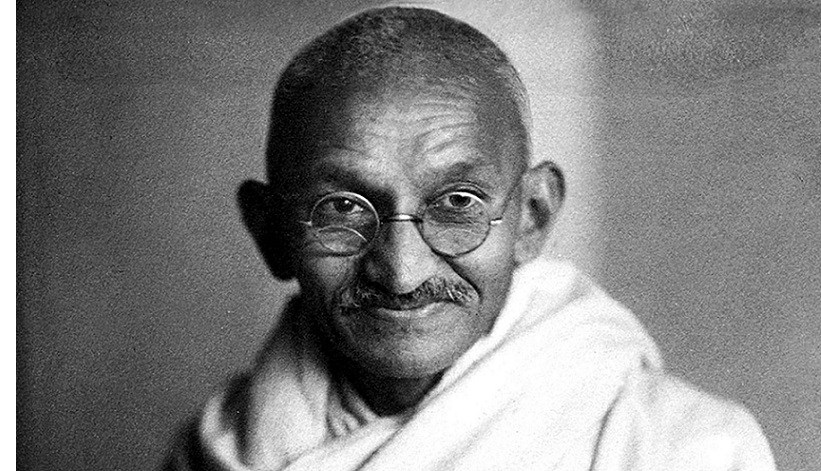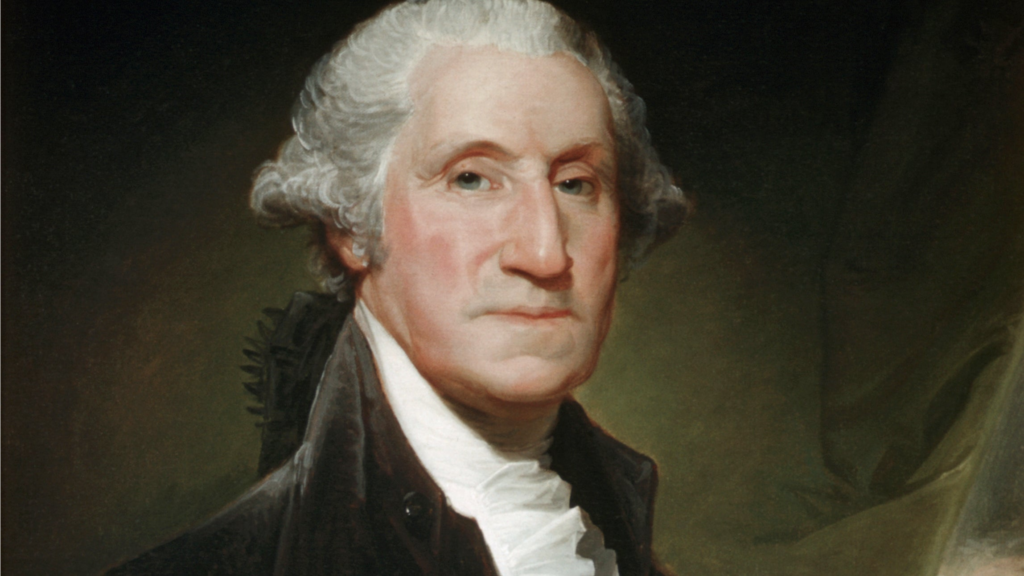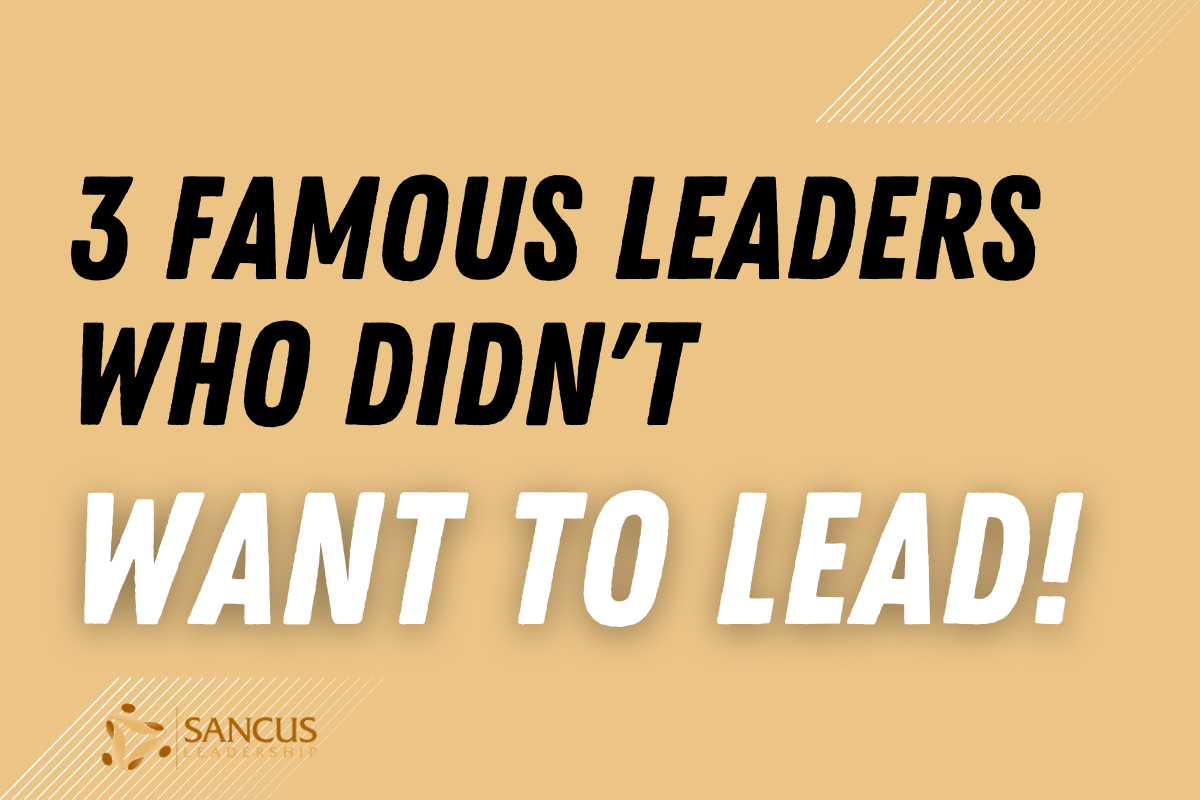Being active in the leadership development community, I am often presented with an illusion that leaders are people who have an innate want and ability to lead. But spending 12+ years in the military, I know this is far from the truth; we put people in positions where they must teach. Many people want to avoid leading but end up excelling anyways. We become leaders for three reasons, necessity, like, or chance.
Famous leaders who never wanted to lead include Mahatma Gandhi, George Washington, and Yvon Chouinard. They all have exciting stories and reasons other than “the desire to lead” that made them into the great leaders they are.
Many people want to avoid leading but end up excelling anyways. We become leaders for three reasons, necessity, like, or chance.
Today I will give you three brief stories of reluctant leadership and then a quick discussion of why some people don’t want to lead even though they are deemed excellent by the people around them.

Mahatma Gandhi

Mahatma Gandhi was a reluctant leader because he was naturally shy and not interested in politics. He was also a man of simple tastes and preferred to live a simple life. However, he was thrust into the political arena due to his strong beliefs and desire to help India gain independence from British rule. He was a leader who believed in non-violent resistance and civil disobedience. His leadership style was based on his philosophy of non-violent non-cooperation.
One example of Gandhi’s reluctance to lead was when he was asked to lead the Indian National Congress in 1920. He was initially hesitant but eventually agreed to lead the party. Another example of his reluctance was when he was asked to become India’s first prime minister after independence. He declined the offer and instead supported Jawaharlal Nehru for the position.
George Washington

George Washington was a reluctant leader because he wanted to retire from public service and return home after leading the American colonists to freedom from British rule. His compatriots sought him because they trusted his decision-making and commitment to the cause. Washington never allowed the influence and power of his position to overwhelm him. Historian Joseph Ellis says one of the best things about George Washington was his ability to give up power.
Yvon Chouinard, Founder of Patagonia

Yvon Chouinard was a reluctant entrepreneur because he didn’t want to be a businessman; he wanted to be a climber. He started the outdoor clothing company Patagonia because he couldn’t find good climbing equipment and wanted to make his own. He has been described as a “reluctant businessman” and “existential dirtbag” by The Guardian.
He wanted to solve a problem, not necessarily start a business; Patagonia later became one of the world’s biggest outdoor clothing brands.
| Leaders who didn’t want to lead | Description |
| Mahatma Gandhi | Mahatma Gandhi was a reluctant leader because he was naturally shy and not interested in politics. He was also a man of simple tastes and preferred to live a simple life. |
| George Washington | George Washington was a reluctant leader because he wanted to retire from public service and return home after leading the American colonists to freedom from British rule. |
| Yvon Chouinard | Yvon Chouinard was a reluctant entrepreneur because he didn’t want to be a businessman; he wanted to be a climber. He started the outdoor clothing company Patagonia because he couldn’t find good climbing equipment and wanted to make his own. |
Why Are People Reluctant to Lead?

People are sometimes reluctant to lead because of the perceived risks involved with being a leader, including interpersonal risk, image risk, blame risk, and fear of qualifications.
People are sometimes reluctant to lead because of the perceived risks involved with being a leader, including interpersonal risk, image risk, blame risk, and fear of qualifications.
This study, The Risky Side of Leadership, discusses the idea of leadership risk perceptions and how individuals sometimes see risks for themselves if they step up to lead.
We all know to some degree that the manager or leader is the one who assumes responsibility when things go wrong (blame risk. We also know that being a boss forces us to make decisions that sometimes will not be liked by our employees and friends, putting us at risk of losing good relationships (interpersonal chance).
Another reason why some people avoid leading even though they are deemed excellent by the organization is the anxiety over “What will people think of me?”, “Will people think I am a bad person, a know-it-all?”
The one that I see the most often is the fear of failure, sometimes manifesting inside our heads as “What if I’m not good enough.” These thoughts are closely linked to imposter syndrome, where we question and undervalue our competency and ability to do a specific job.
Here’s a video of Brendon Burchard talking about the six practices of effective leadership.



